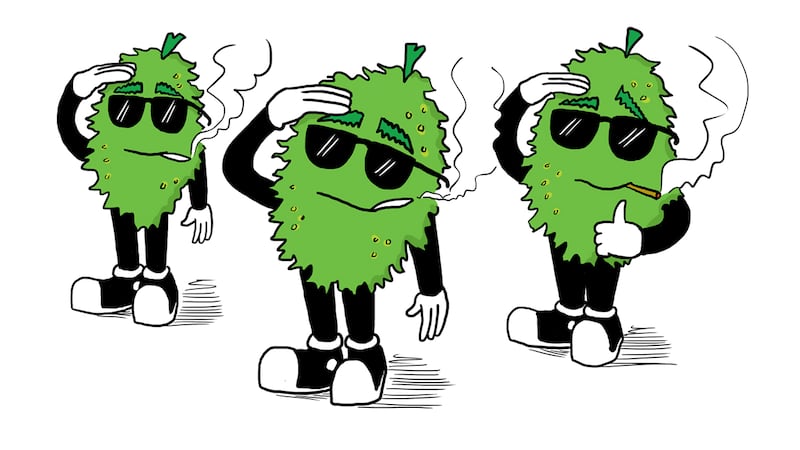Cannabis is indeed medicine, and veterans deserve full legal access.
According to the U.S. Department of Veterans Affairs, more than 20% of the millions of Iraq and Afghanistan veterans will experience post-traumatic stress or depression. Treating every veteran's mental and physical health needs is not something the VA is equipped to handle, especially when the treatment of choice for so many is federally illegal.
As complex as America's military is—naturally there's a difference between those who served during certain eras, under certain administrations, and under certain circumstances—one thing all veterans seem to agree on is, for the most part, military service has the inherent potential to invite some degree of trauma.
Cannabis therapies have been proven to help cope with that trauma.
In honor of Veterans Day, WW reached out to members of the canna-vet community to get their takes on what cannabis means to them post-service.
Christopher Roll, retired Navy submarine sailor and owner of Flying Walrus Cannabis Farm
WW: What was your relationship with cannabis pre-service?
Roll: I was a teenager in the '60s. Those are pretty formative years, there was a lot going on. Kind of like right now, but the '60s were like that for 10 years. There was a lot of civil unrest, and the Vietnam War. It was a pretty radical time to be a teenager. During that time, I smoked a lot. But I got a draft notice to go to Vietnam, and when I was in the military, I didn't smoke because we weren't allowed. So I stopped.
What role has cannabis played in your life post-service?
Veterans have a lot of things going on medically and psychologically usually. But, you know, regular people do too. It's just that veterans get exposed to a few things besides traffic accidents and all the other stuff that humans end up doing. They have another layer of stressors and character-building experiences. There's a lot of people putting a lot of time into the medical side of cannabis, but I'm just kind of on the fringes of it. I do consume daily, but I don't consider myself a stoner. I think I'm somewhere between recreational and medical. I don't know that there's a category for that, it is definitely a subgroup.
How are you celebrating Veterans Day this year?
Me and my neighbor are working on the farm. I'm 70, she's 73. It's a rock-and-roll retirement ranch. This would be a great way to have an assisted living facility. I kind of picture this 10-acre place where old hippies can hang out and try and find a way to make money without having to go to a job. And I know people that are successful to some extent here in Oregon combining the farm life with whatever they can make or build. So, I guess I'll be trying to recruit some old hippie chicks.
Steve Danyluk, retired lieutenant colonel U.S. Marine Corps and founder of Warfighter Hemp
WW: How has cannabis use affected your life post-service?
Danyluk: My viewpoint on cannabis did a complete 180 after leaving the Marine Corps, where it was completely forbidden. For me the most significant impact was seeing the positive effect that it was having on so many of my colleagues who were struggling with opiates and other powerful medications that they were being prescribed by the VA. A lot of veterans, particularly the combat-wounded ones who seem to prefer our stronger oils, many of these veterans are completely off of prescription medications as a result [of CBD therapy], and that is one of the things that we at Warfighter Hemp are most proud of.
How will you be spending your Veterans Day this year?
My wife is still in active duty, so the first thing I will probably do when I wake up is kiss her and thank her for her service. Then, during the day, I will probably spend a few moments thinking about Dave Greene. Dave was a guy I served with and who is the highest-ranking Marine officer to have been killed in action in Iraq. He was an exceptional person on so many levels, and his loss was a loss for all of us.
Raina Casey, retired mortuary affairs specialist and founder of Oregon Handlers Fund
WW: What role has cannabis played in your life post-service?
Casey: I actually enjoyed the time I spent in the service pre-9/11. I'm sure that's why I have the health issues I have already. I had to make a choice—cannabis or the VA. Guess which one I picked? Simply because the VA is a federal program, cannabis is still illegal on the federal level. All they do is push pills anyway. Give you a pill for constipation and when you can't stop crap from rolling down your leg, you get one for the squirts! Cannabis helped a great deal with my mental health and the PTSD I've suffered.
How do you celebrate Veterans Day?
By trying to stay Black and alive! I've never cashed in on any special freebies at stores, etc. Now that I think about it, I don't think any of us do that I know of. I'm usually with my comrades, family and other service members on Veterans Day. And I keep it moving.
What's your weed of choice on this holiday?
My favorite product is CannaHoney and favorite strain is #GodDiva Kush, a cross of Obama Kush and Black Magic that I grew last year.
